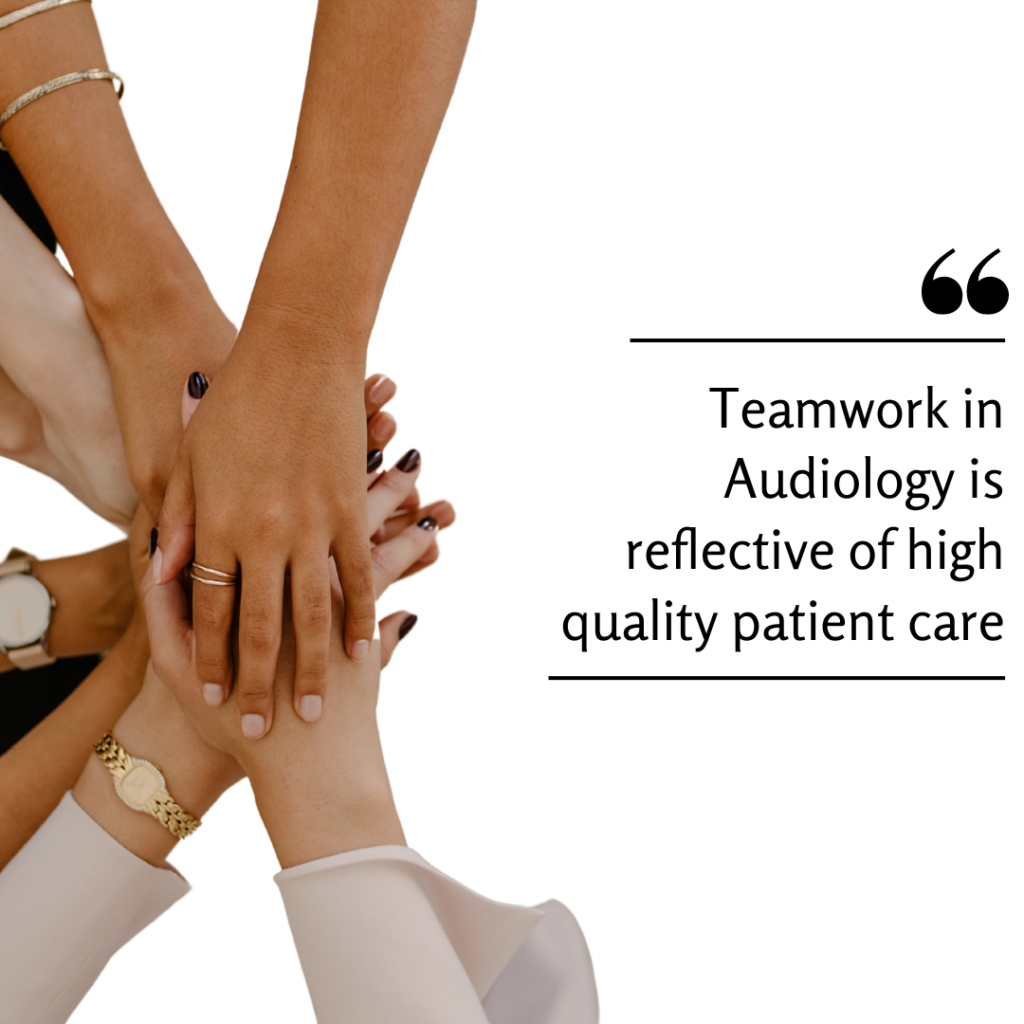Finding Harmony: The Role of Teamwork and Flexibility in Audiology

As clinicians, we know that each patient’s journey can present unique challenges and complexities. Often, more advanced audiological care for patients who suffer from Tinnitus, Hyperacusis, Auditory Processing concerns, or a combination of these can demand both adaptability and flexibility. During these appointments, we often need to take a holistic approach to patient care and think quickly and outside the box when making clinical recommendations. At the heart of this holistic approach lies the concept of a team – a collective of individuals united in their dedication to providing the highest quality of care.
But what does adopting a team approach in audiological practice truly mean? First and foremost, it entails recognizing the value of collaboration within one’s clinic and beyond. In an ideal scenario, a team extends beyond the audiologist to include the patient and their support system, co-workers within our clinic, the patient’s primary care physicians, and any other healthcare providers involved in the patient’s care. This interdisciplinary collaboration allows for a holistic approach to patient management, fostering integration, innovation, and improved outcomes. It also demonstrates a recognition of our own limitations and scope of practice and a respect for our peers and the unique contributions that they can bring to patient care.
Yet, in the realm of private practice audiology, where clinics may be small and resources limited, fostering a culture of teamwork can be challenging. This is particularly true in private practice audiology, where clinics may only employ one or two audiologists and if the clinic is not affiliated with a larger medical practice or ENT practice. This is where the importance of a collaborative mindset becomes vital. Audiologists can amplify the impact of their care by thinking beyond the confines of individual practice and embracing the expertise of colleagues and external partners.
However, teamwork is more than just a concept; it requires practical implementation. In our clinic, we’ve found that creating opportunities for team-based patient care, such as conducting joint appointments or holding regular internal team huddles, can be immensely beneficial. This approach enhances the patient experience by providing access to multiple perspectives. Still, it also ensures that every team member is on the same page, defines clear roles and responsibilities, and enables open dialogue amongst team members on how to best care for our patients.
Of course, none of this is possible without a flexible mindset. Flexibility is the linchpin of effective teamwork in Audiology. It allows us and our colleagues to adapt seamlessly to the dynamic demands of patient care, whether it’s adjusting schedules, brainstorming creative solutions, or stepping in to support a fellow team member. Flexibility ensures that the wheels of patient care keep turning smoothly. But beyond its practical applications, flexibility fosters a culture of empathy, understanding, and mutual respect among teammates. It acknowledges that each team member brings their strengths and limitations and encourages collaboration and support. In the end, the true beauty of teamwork in Audiology lies not just in the clinical expertise we bring to the table but in the relationships we build and the sense of camaraderie and mutual respect that binds us together.

